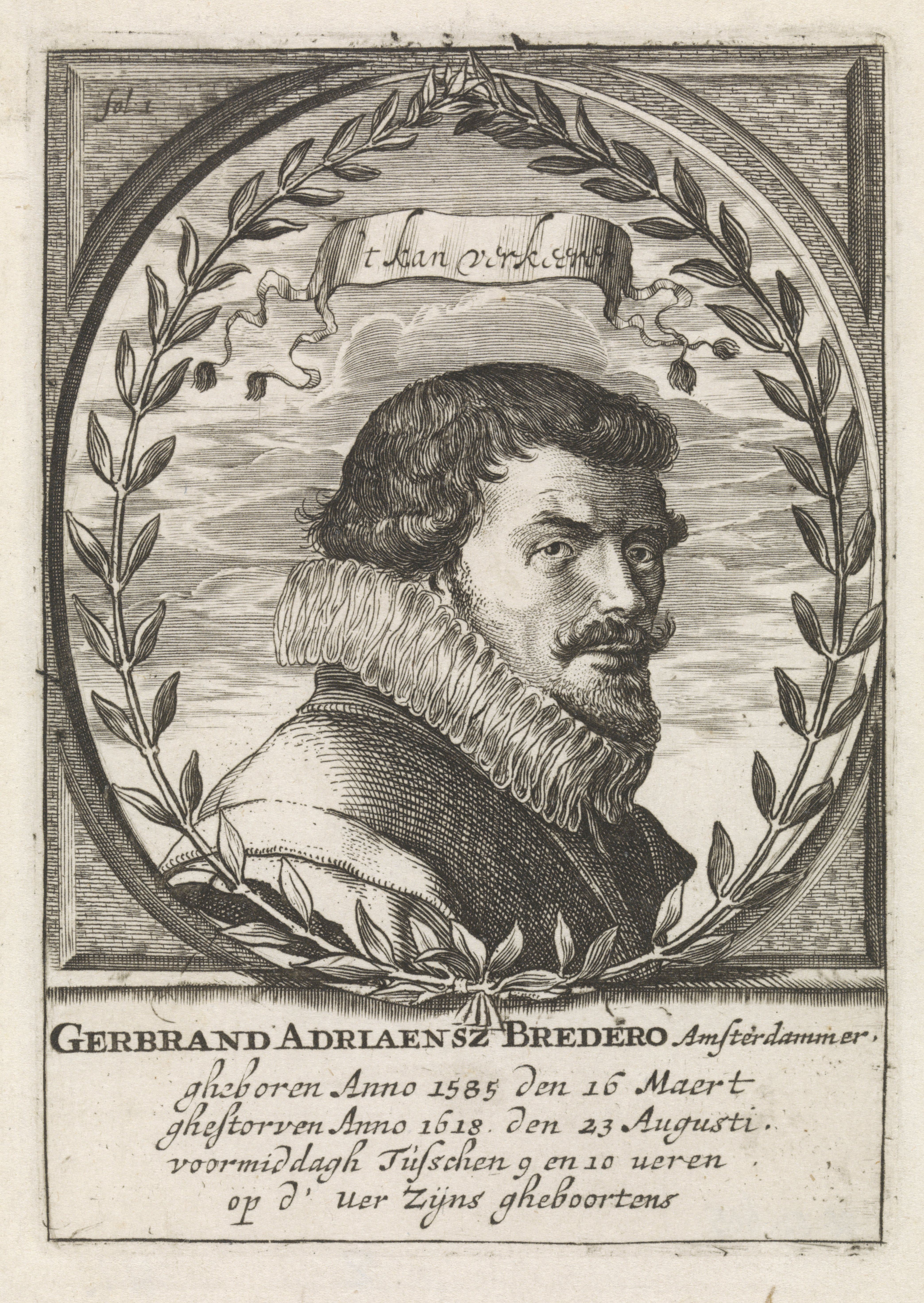Gerbrand Adriaensz. Bredero
Bredero was a seventeenth-century Dutch poet.
Bredero (1585-1618) was a Dutch poet of the sixteenth and seventeenth centuries. He was a member of the rederijkerskamer D'Eglentier (Eglentier Chamber of Rhetoric). Under the leadership of Samuel Coster, some dissidents founded the Nederduytsche Academie. Bredero also followed Coster. In 1622 the Boertigh, amoreus, en aendachtig groot lied-boeck van G.A. Brederode, Amsteldammer (Good, Amusing and Attentive Songbook by G.A. Brederode, Amsteldammer), appeared posthumously.[1] His best-known play is Spaanschen Brabander (Spanish Brabanter). It premiered in the Nederduytse Academie. Bredero's participation in the Academy guaranteed a large audience. Bredero sketched a picture of a city overrun by foreigners, and the decay that resulted.[2]
't Kan verkeren' (It's all in the game) was Bredero's famous motto.[3] Anne quotes this motto in her diary. This is well reproduced in most translations of the, but in the English translation the quote is attributed, not to Bredero but to Br'er Rabbit.[4] Br'er Rabbit is a character from American folklore, who became famous thanks to the Unlce Remus books of the 19th century writer Joel Chandler Harris about Br'er Rabbit's eternal fight with Br'er Fox and Br'er Bear. Walt Disney adapted Harris' books in 1946 as the feature animated film Song of the South. Some American literary historians now assume that Anne actually read the Uncle Remus stories,[5] but that is highly unlikely.
Footnotes
- ^ KB, Nederlandse poëzie, Historische dichters: Gerbrand Adriaensz Bredero (1585-1618).
- ^ Mieke B. Smits-Veldt, "24 september 1617: Inwijding van de Nederduytse Academie", in: M.A. Schenkeveld-van der Dussen (hoofdred.), Nederlandse literatuur, een geschiedenis, Groningen: Nijhoff, 1993, p. 196-201, aldaar p. 200.
- ^ Anne Frank, Diary Version A, 24 January 1944, in: The Collected Works, transl. from the Dutch by Susan Massotty, London [etc.]: Bloomsbury Continuum, 2019.
- ^ The attribution to Br'er Rabbit first appeared in Barbara Moyaart-Doubleday's 1952 translation of Anne's diary and has not been corrected in Susan Massotty's translation.
- ^ Sylvia P. Iskander, 'Anne Frank's reading: a retrospective', in: Hyman Enzer & Sandra Solotaroff-Enzes (eds.), Anne Frank: reflections on her life and legacy, Urbana & Chicago, IL: University of Illinois Press, 2000, p. 105.
